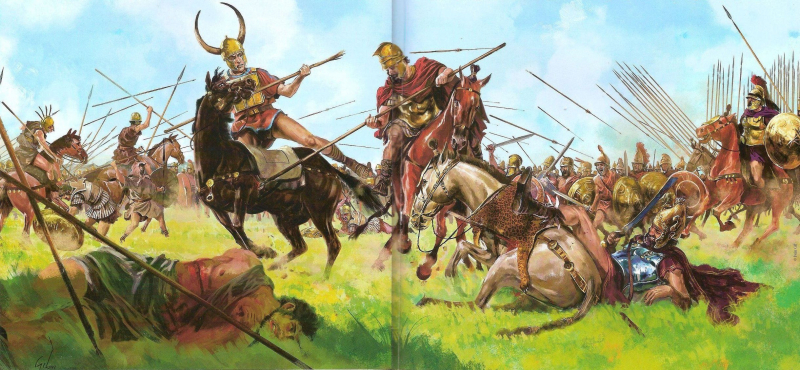Battle of Heraclea

The Greeks and Romans fought at the Battle of Heraclea. The Epirus king Pyrrhus commanded the Greeks, while the Romans were headed by consul Publius Valerius Laevinus. Greeks marched from Heraclea, Tarentum, Thurii, Epirus, and Metapontum. Magna Graecia, of which the Tarentum was a part, had two main factions: one opposed the Romans and the other supported them. Tarentines asked Pyrrhus for assistance when Romans approached Tarentum. He decided to aid Tarentines as he awaited reinforcements for his pals.
He intended to fight Romans on a plain near the river Siris between Heraclea and Pandosia if reinforcements didn't show up. He was not, however, aware of the size of the Roman army. Because the Romans had around 100,000 more soldiers than the Greeks, Pyrrhus was alarmed and lost all hope of winning the conflict. He managed to spread false information about his demise, which caused the Romans to rejoice. He capitalized on the opportunity and assaulted Rome with his war elephants, giving the Greeks the win. The Romans suffered 15000 casualties, compared to only 11000 for the Greeks.
Date: July 280 BC
Location: Heraclea, Basilicata, southern Italy
Combatants: Greeks against the Roman Republic
Result: Greek victory













